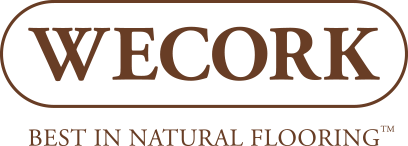What Are the Natural Benefits of Cork?
The inherent benefits of cork are unmatched by any other flooring material. Cork is naturally superior because it is:
How the Benefits of Cork Create Better Flooring
Cork's benefits make it a wonderful material for a host of applications, as noted in our Sustainable Design with Cork blog article. But what they mean for cork flooring? Practically speaking, cork flooring is:
1. Quiet & Acoustic
Cork’s many air cells contribute to excellent acoustic benefit, providing efficient sound resistance above and below the floor. Cork is an effective way to muffle the sound of children playing in a room above, or reduce the echo found with “other” hard surface floors in a media room.
2. Warm & Insulating
The cellular structure of cork also creates thermal insulation, inhibiting cold transfer from the subfloor. Cork performs excellently in basements, and in applications over slab or pier and beam foundations.
3. Soft & Comfortable
Cork has approximately 200 million enclosed air cells in every cubic inch, giving it resilience and comfort underfoot. Since walking on cork is like walking on air, adding cork to a room means adding comfort.
4. Environmentally Friendly
Cork is a 100% rapidly-renewable resource, made from the bark of the cork oak tree. Skilled workers carefully strip the bark off every nine years, during which time the the tree regenerates bark for a new harvest. We never cut down the tree!
5. Hypoallergenic & Anti-Fungal
Cork trees coat themselves with suberin (a sappy substance) to protect against mold, mildew and insects while bark regrows after harvest. This suberin grows into the cork and generates unsurpassed natural anti-fungal and hypoallergenic properties. This makes cork flooring beneficial for anyone sensitive to mold and mildew or has allergies.
Unique Physical Properties that Produce the Benefits of Cork
The key benefits of cork listed above are what cork famous for, and what puts it in a category all its own. But what makes cork so remarkable? These unique physical properties listed below are what gives cork its natural advantages!
BUOYANCY
More than 50 % of the cell volume of cork consists of air. It is one of the lightest solid substances, with a specific gravity of .25.
ABILITY TO ABSORB VIBRATION
Every cubic inch of cork has more than 200 million completely enclosed air cells, each measuring 1/1000″ in diameter. These minute cells have 14 sides, virtually eliminating empty spaces between the cells. Since 50% of cork is filled with air, it essentially acts as an “air cushion”, absorbing vibrations and direct impacts. This makes it an excellent acoustic and soundproofing material for floors, walls and ceilings.
LOW THERMAL CONDUCTIVITY
Next to a vacuum, "dead" air space is one of the most efficient non-conductors of heat. Thanks to the cell construction of 200 million completely enclosed air cells mentioned above, cork has this property inherently.
COMPRESSIBILITY
A cubic inch of cork can withstand up to 14,000 lbs of pressure per square inch without breaking, and retain 90% of its original form after the pressure is released. Cork returns to 97% to 100% of its original form after a more typical pressure is released.
RESILIENCY
Heavy pressure does not break down the tiny air cells in cork. On the contrary, compressed air within the cells spring back when the pressure is removed. A roll or sheet of composition cork can be compressed in one direction without losing its dimensions in the other direction, which is critical for many applications.
STABILITY
Thanks to its compressibility and resiliency, cork displays a high degree of stability under varying conditions. This is paramount to its continual usage and success throughout the world today. Cork is a tough, durable substance with a remarkable capacity for retaining its initial properties.
RESISTANCE TO MOISTURE AND LIQUID PENETRATION
The cellular structure of cork makes it a highly resistant to liquid penetration. While not completely impervious to moisture, it can be made waterproof with the addition of a proper binder.
FRICTIONAL QUALITY
The natural form and composition of cork make it a highly frictional material. Even when wet or coated with oil or grease, cork retains this quality, outperforming leather, rubber, and many other products used for frictional or non-skid purposes.











